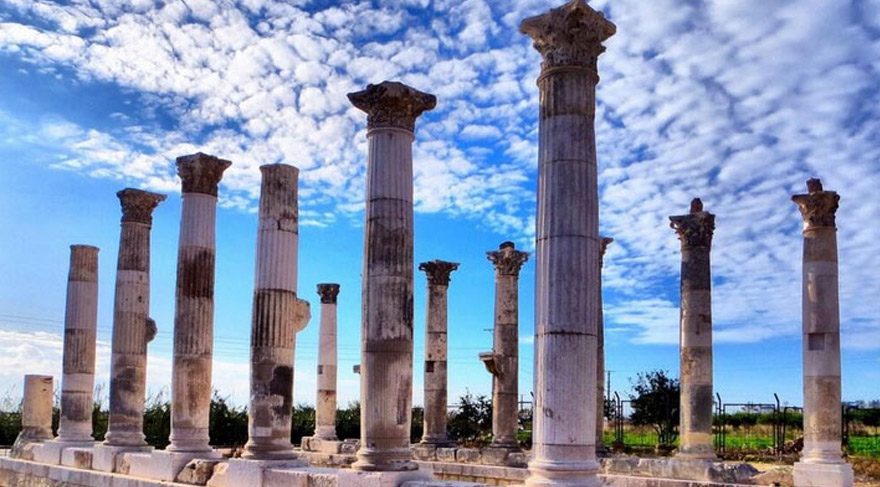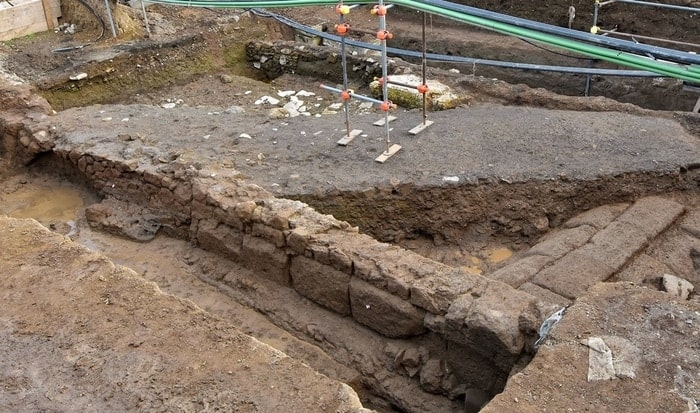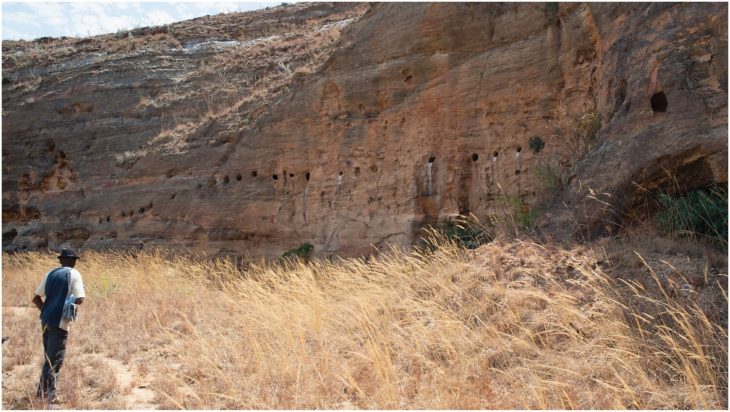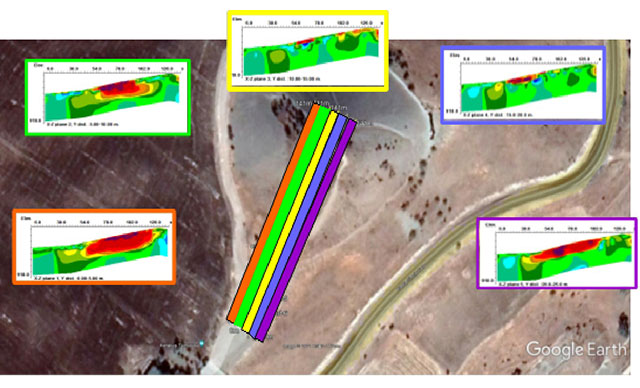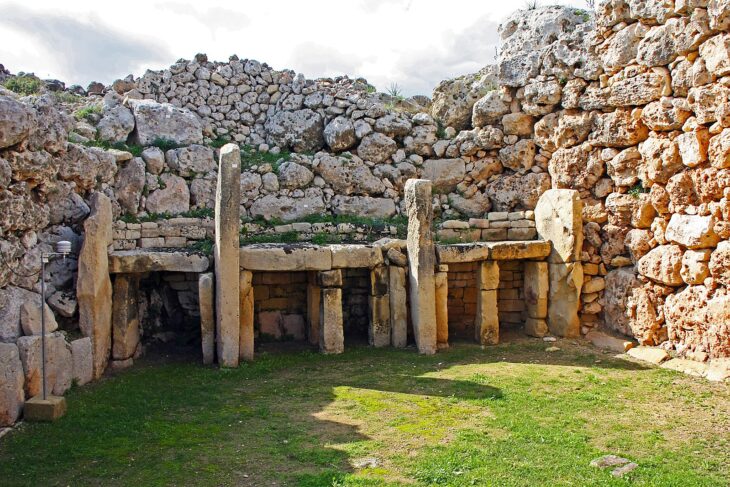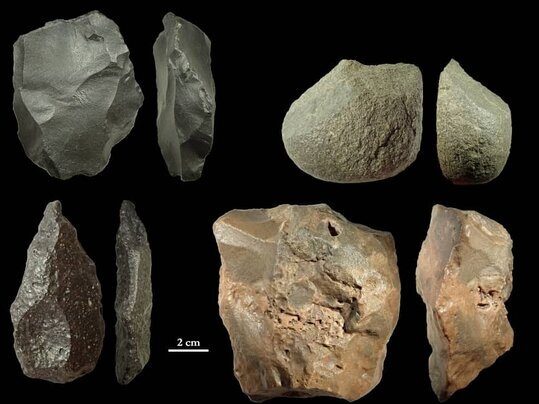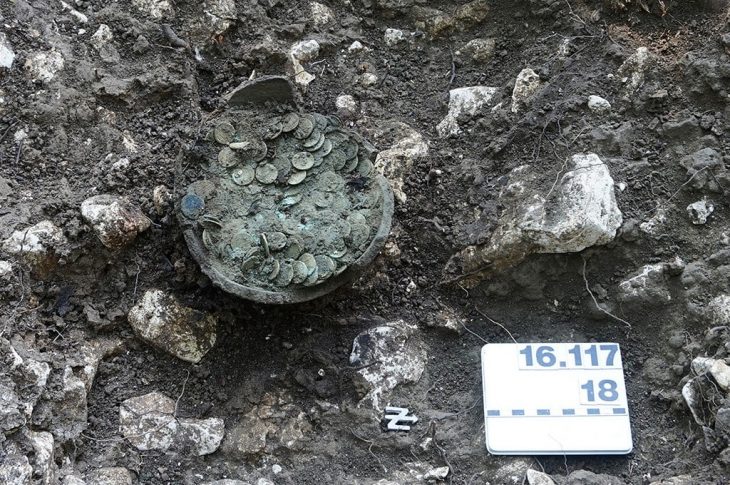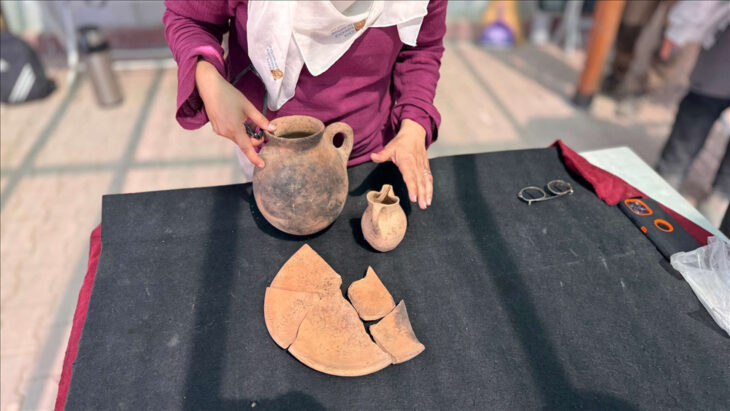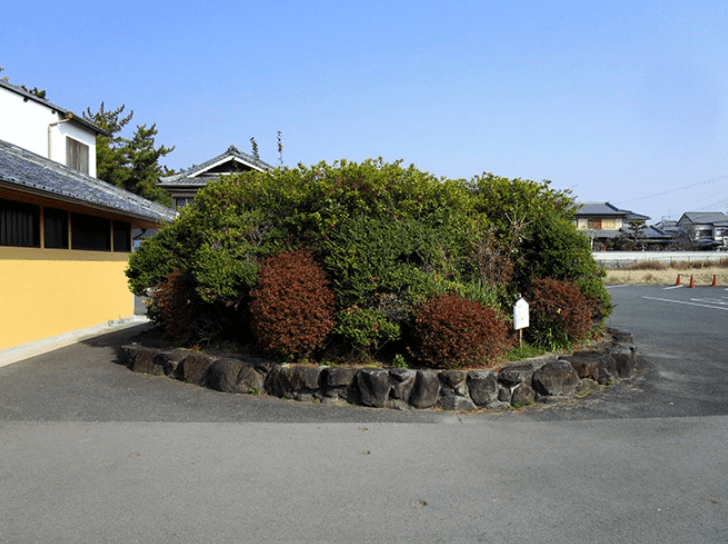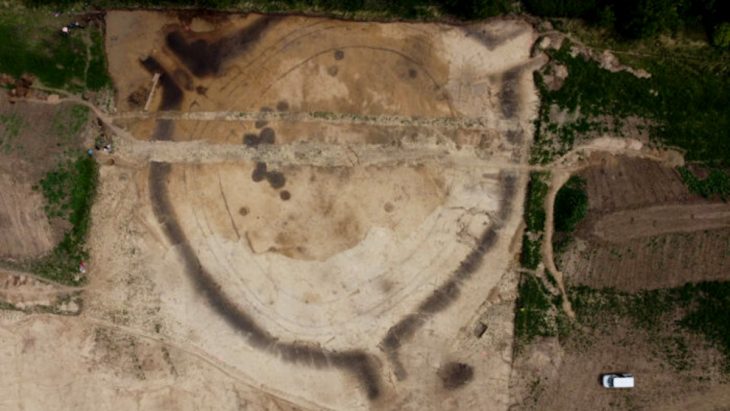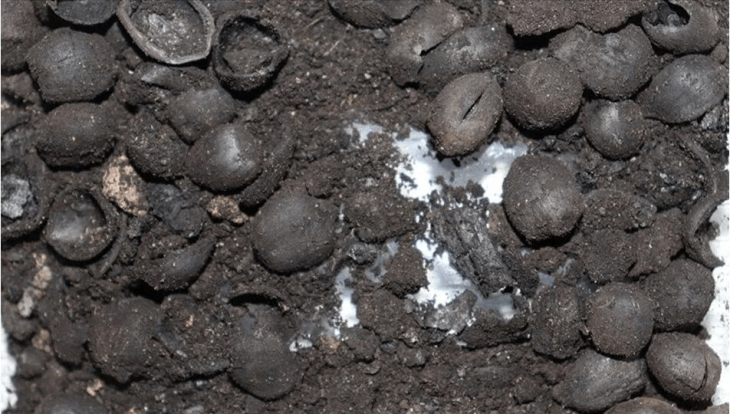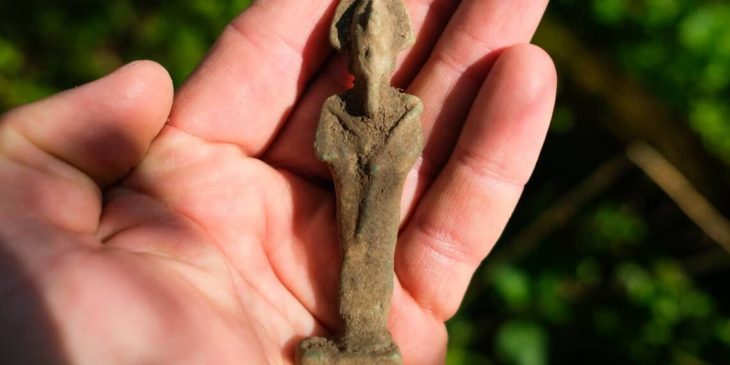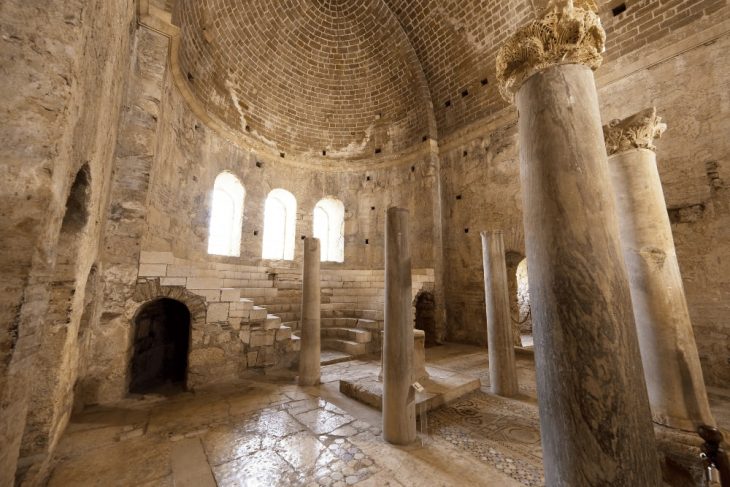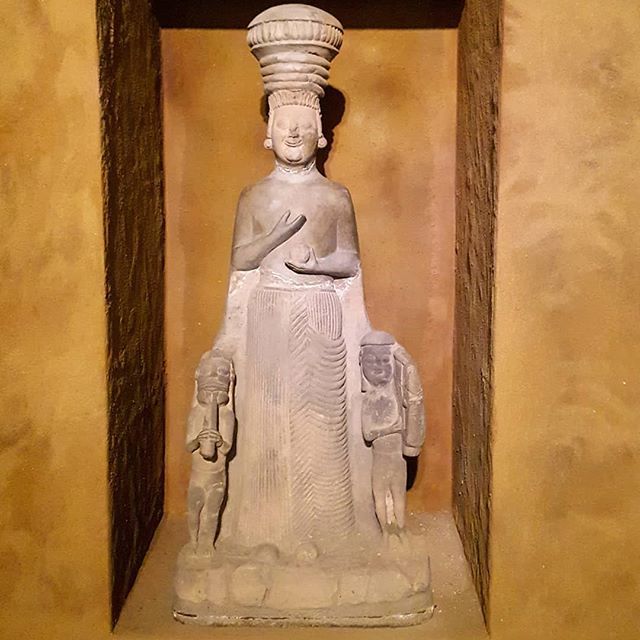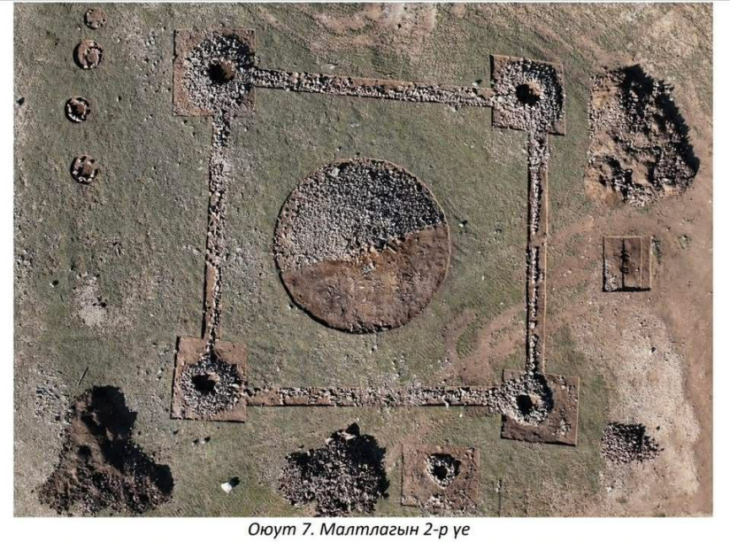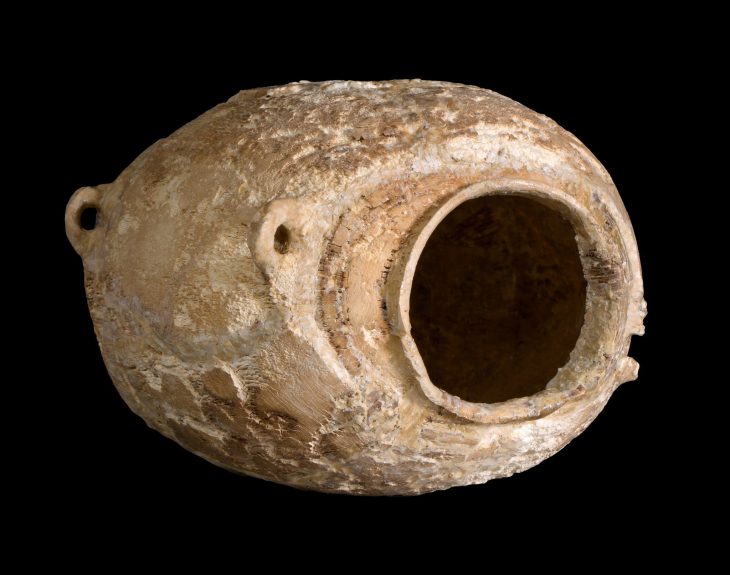The inner wall was reached during the excavations of the tomb of Aratos, the famous poet and astronomer of the Hellenistic period
It was reported that most of the inner wall was unearthed during the excavations carried out in the area considered to be the mausoleum of Aratos, the famous poet and astronomer of the Hellenistic period, in Mersin province located in the south of Turkey.
In the Soli Pompeipolis Ancient City, Dokuz Eylül University Faculty of Letters’ Museology Department, Archaeological excavations which started with the team led by Professor Remzi Yağcı, continue.
According to the statement made by the Mezitli Municipality, Soli‐Pompeiopolis, located in the west part of Mersin, was one of the important ports of the Cicilia region in the second and third centuries B.C.
Yagci, whose views are included in the statement, noted that the mausoleum is 150 meters away from the colonnaded street in the ancient city.
📣 Our WhatsApp channel is now LIVE! Stay up-to-date with the latest news and updates, just click here to follow us on WhatsApp and never miss a thing!!
Stating that the findings are important both scientifically and in terms of Mersin tourism, Yağcı said, “We are trying to reveal the monumental structure, of which there is not enough information about its shape because it is in pieces in our studies,” he said.
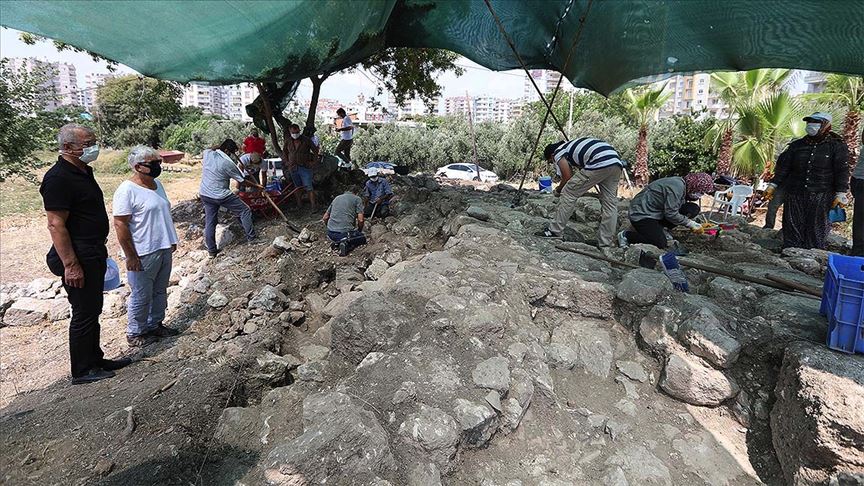
Mersin University Archeology Department Lecturer Assoc Emphasizing that they are happy with the satisfactory results of the excavation in a short time, Dr. Deniz Kaplan said, “Despite the findings, we are still at the beginning of the road. As can be seen from the excavations, we are faced with a circular structure in the center and a hexagonal infrastructure around it with two lines. As the excavation progresses, the plan views of these elements may change, and we will be able to tell clearer information when it progresses,” she said.
During the fourth century B.C., SoliPompeiopolis was ruled by the Persians. After Alexander the Great drove the Persians out of Cicilia, the kingdom of Macedon and later the Seleucid Empire ruled over SoliPompeiopolis. Under Seleucid control, the ancient city reached its peak during the Hellenistic period. Philemon, a poet of the New Comedy – a form that adapted the representation of ordinary life – the Stoic philosopher Chrysippus, and Aratus are among the prominent individuals from Soli during this era.
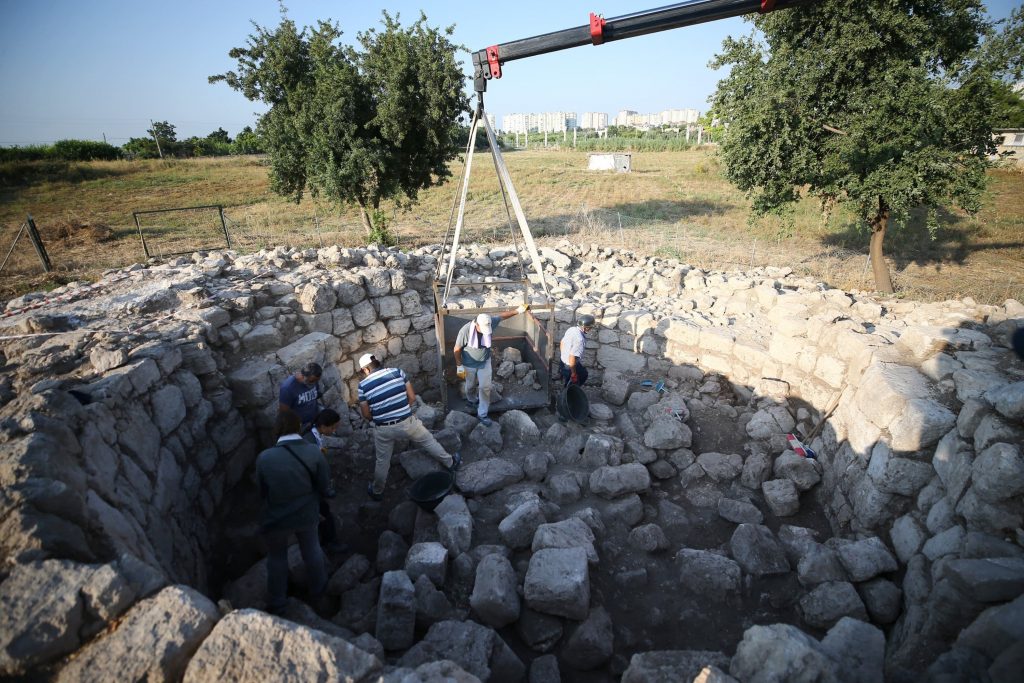
Speaking to Anadolu Agency (AA), Yağcı said that Aratus was among the most famed people of his period. “His fame even survived to date. Aratus was born in Soli‐Pompeiopolis but died in Pella in central Macedonia. Nevertheless, people built a memorial tomb for him in his birthplace.”
Mentioning the discovery process of the memorial tomb, Yağcı said, “The tomb was discovered by travelers in the 19th century and remained under the ground for many years. A sarcophagus with engravings is seen here. For this reason, it was named Aratus’ tomb by the paleographer Victor Langlois. Afterward, Ghevont Alishan has transferred the tomb on the scaled plan. This is a crater-like place, a monumental structure. It has a symbolic meaning. It is not a very practical building functionally, but it has a monumental and symbolic significance.”
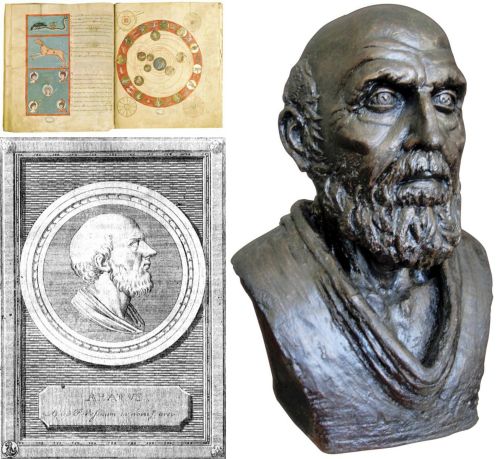
Professor Remzi Yağcı said that their primary aim is to restore the memorial tomb and added “With restoration and restitution projects, we will turn this place into a world-class center that attracts the attention of history enthusiasts.”
Aratos (315 BC Tarsus – 240 BC Macedonia, Pella) was a stoic philosopher, poet, mathematician, and astronomer who lived in Antiquity. Aratos, who completed his primary education in Tarsus, later went to Athens to study mathematics and astronomy in his twenties, while he studied philosophy with the Stoic philosopher Zeno.

